Join Me in Considering Them
Kathleen FrydlBlockedUnblockFollowFollowingDec 1
Special Counsel Robert Mueller, responding to this week’s bitter (but not unforeseen) Manafort setback, has shown some real firepower on Michael Cohen, leaving his enraptured audience of real and self-appointed commentators in a fierce debate over the implications of the testimony proffered by Trump’s former personal attorney.
While others are consumed with that discussion, I’ll dart in an entirely different direction: the possibility that, during the first part of the 2016 election season, the government of Russia’s support — if not actual election assistance — originally fell to Republican Senator Ted Cruz.
As some of you who used to follow me on Twitter know, the notion that Russia originally and more seriously supported Ted Cruz is not a new theory for me. For some time now, I have made note of suggestive evidence that supports it. Let me first discuss the data that lends credence to it, and then turn to what it might mean or why it might be important.
- Twitter analysis.
Two months ago, Twitter released a “trove” of 10 million tweets that the company says comprises the “foreign influence” on its platform for the past 10 years — including the 2016 election season. Politico’s report on the data set (link below) describes Russia’s “initially erratic” conduct toward Donald Trump, which eventually settled into full-throated support. It also notes that the same “erratic” approach could be discerned in the case of Ted Cruz, and that Russia, in the words of an Atlantic Council researcher quoted in the story, “initially backed more than one horse.”
Massive Twitter data release sheds light on Russia's Trump strategy
Twitter on Wednesday released a trove of 10 million tweets it says represents the full scope of foreign influence…www.politico.com
2. Blunt Statements from Russian Analysts.
In February of 2016, NPR had the wisdom to ask some “Kremlin-friendly” Russian analysts their preference among American presidential candidates (link below). These folks should not be regarded as independent thinkers, peddling a maverick analysis that speaks truth to power, but rather as conduits of Kremlin messaging.
Most of the story is devoted to the pair’s admiration of Trump (and their hostility toward both Hillary Clinton and Marco Rubio, all of which matches the Twitter campaign). But note this passage:
“Drobnitsky says his second choice among the current candidates would be Ted Cruz, because he believes Cruz represents the values of heartland America. Neither analyst mentioned Cruz’ views on bombing ISIS.
Markov also sees Cruz as a good second choice, saying his religious values would be a hedge against corruption. But neither analyst thinks Cruz can win this time around.”
Who Is Moscow's Favorite Among The U.S. Presidential Candidates?
As the U.S. presidential campaign moves into primary season, America's allies and rivals are starting to pay a lot…www.npr.org
3. Most Important: Robert Mercer, Steve Bannon, and Cambridge Analytica.
WTF people.
It is both interesting and deeply weird to me how people omit, ignore, or minimize the fact that the original Cambridge Analytica nexus was all centered around advisors to and funders of the Ted Cruz campaign.
It is no secret that Robert Mercer originally supported Ted Cruz in the 2016 race, including funding a SuperPAC run by Kellyanne Conway devoted to Cruz’s presidential campaign. Mercer was also a reported funder of Breitbart News, and its director Steve Bannon was regarded as among his closest political advisers. As this Washington Post piece prompts us to recall: “Mercer has been the leading donor to the super PAC behind Ted Cruz’s campaign. (Before its devotion to Trump, Breitbart was very much in the corner of Cruz, with Politico going as far as calling the site Cruz’s “media lifeline” before the Trump surge.)”
Finally, there is Cambridge Analytica itself, which Mercer also funded, and Steven Bannon also helped to direct. Before Cambridge Analytica worked for the Trump campaign, the firm worked for Ted Cruz. FEC records show Cruz campaign payments totaling $5.8 million to Cambridge Analytica, roughly equal to what the Trump campaign paid the firm after being hired in the final months of the campaign.

That means the interesting revelation that Cambridge Analytica looked to solicit support for the Brexit campaign in the United States, in possible violation of British election law, should be read retrospectively and in proper sequence. That is, in contrast to Jane Mayer’s discussion in The New Yorker (“The possibility that Brexit and the Trump campaign relied on some of the same advisers to further far-right nationalist campaigns has set off alarm bells on both sides of the Atlantic.”) — the proper historical imagining of this “alarm bell” would put Bannon and Cambridge Analytica working to advance the ethnonationalist, Kremlin-supported agenda of Brexit, and then throwing their support behind Ted Cruz.
What, If Anything, Does This Amount To?
One question that ought to be asked regarding the known and as-yet- unknown but widely conjectured Russian support for Donald Trump’s presidential campaign is, why would the Kremlin be so stupid? To be more concrete: no one thought Trump would win the Republican nomination, nor did anyone think he would win the presidency once he secured the nomination. It’s not like Trump presented zero utility to Russian government; in fact, I have long wondered whether his interest in running for president was deliberately cultivated by the Kremlin. Even without a good prospect of winning, Trump was a chaos agent who heightened the contradictions of race in the Republican Party; carried pro-Russian government policy preferences; and hectored the establishment. He was a living, breathing Overton window, dragging the outermost point of discourse further to the right, and encompassing positions more favorable to the Kremlin.
But he was a poor bet to win. In light that fact, and in the hope of returning a sense of ambiguity to what now strikes us as inevitable, let’s raise some questions.
Question 1: Did Russia’s Government Initially Favor Ted Cruz?
I believe that Russia has made all kinds of investments in the American political system, across the spectrum — left, right, and center. It has seen its greatest return on its investments on the right, for reasons that should be discussed at length, as should its other investments.
But a political and media establishment that is anchored to the idea that Trump its own antithesis and antagonist, rather than an exaggeration and culmination of it, prefers to concentrate all questions of foreign interference on Russia, and all questions of Russian interference on Trump. Many people whose disgust with our current politics was sparked by one or more of Trump’s grotesque feats would agree.
However, I do not agree. I think that it is very possible that Russia saw several candidates as favorable to advancing its objectives, and that Ted Cruz was one among them. To be perfectly clear and candid: as a Senator and as a presidential candidate, Cruz voiced strong views that challenged Russia’s positions, and that fact might be sufficient to dismiss all the questions raised here. But it’s just as significant, at least in my eyes, that the Russian troll support for Cruz continued amidst and in spite of his statements, as did the stated support from pro-Kremlin advisers.
Most important, Cruz as a candidate was the very embodiment of the most serious investments Russia has made in American political culture: guns and evangelicals. Trump was merely an epigone; an artless imitator, who if anything laid the groundwork for Cruz to appear more reasonable. In this light especially, Cruz as a president or a presidential nominee might have used his earlier positions on Russia as political latitude to craft a new understanding.
Question 2: Did Anything Illegal Happen Here?
I have no idea. Frankly, I would doubt it, because Cruz is not as stupid as Donald Trump. To date, the Cruz campaign has claimed that it was unaware that Cambridge Analytica employed data harvested from Facebook in violation of Facebook policies regarding third-party data collection and use.
Question 3: Why is the Kremlin So Devoted to Mucking About in US/Western Politics?
Though rarely treated at length, this is another question worthy of its own exposition. The litany of factors typically enumerated include: 1) anti-Russian demonstrations in Ukraine, which Vladimir Putin felt was driven by Western governments, and the US specifically; 2) Putin’s inability and/or unwillingness to diversify the Russian economy from its current heavy reliance on energy production or rid it of corruption has driven him to several adventurist projects, either to secure energy markets or distract from poor economic prospects at home. Defending those projects against criticism and countermoves from the West now strikes him as a matter of survival.
To these I would add: 1) the Panama Papers. What is up with those? Who released them, and why? 2) the recently achieved energy-independence of the United States, wrought by the revolution in energy extraction known as fracking. Among the many implications of this tremendous (if also largely undiscussed) transformation: the US is a newly empowered exporter of crude oil and can effectively bargain to help set the price of oil.
And that’s just what Putin is hoping the US will help him to do:
Putin suggests Russia and US could work together to regulate oil prices
Russian President Vladimir Putin suggested that Moscow and Washington could cooperate to soothe volatility in the oil…www.cnbc.com
To my way of thinking, too much analysis has focused on what the Russia government sought to gain by diminishing a presumed (often real) antagonism with the US, and not enough on what it hoped to forge in a new collaboration. In that light, it’s worth remembering what George Kennan Jr. observed long ago: the fundamental similarities between Russia (or the Soviet Union) and the United States in terms of size, population, and the cultural and political affinities of ordinary people residing in either place.



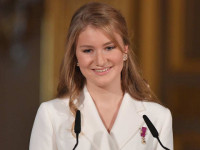




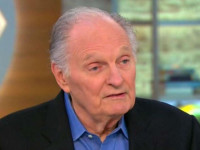












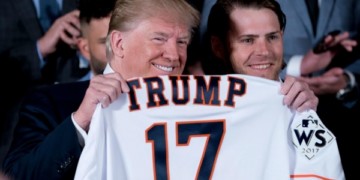
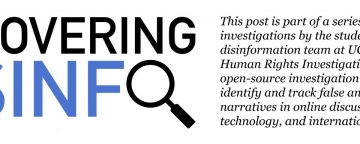

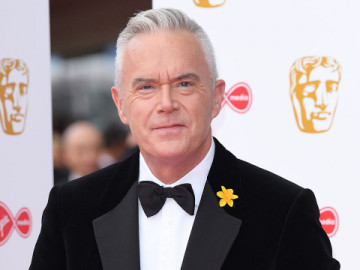
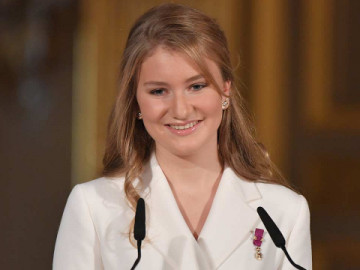
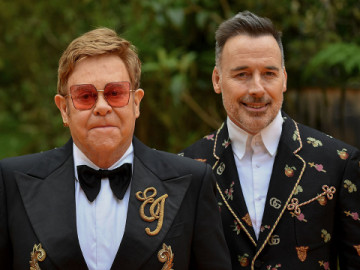

Connect with us